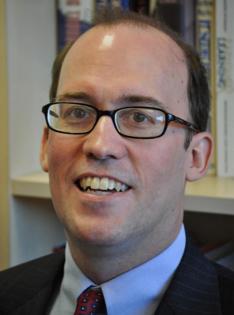POINT: No, and it's not the young adults' fault
Published in Op Eds
As we approach Memorial Day, it is sobering to recognize that today’s young people are unlikely to respond as enthusiastically to a call to serve their country as members of the World War II generation did 80 years ago. Young people do not exhibit the high levels of patriotism and commitment to democracy found among earlier generations. However, I don’t blame young people.
Each generation must be taught, by word and deed, the genius of American democracy, and those of us who are older have failed to do so.
During World War II, Americans rallied around Franklin D. Roosevelt’s call to make America the “Arsenal of Democracy,” providing war materials to confront Adolf Hitler. Young men and women ultimately came forward to serve in U.S. military forces that would change history by defeating Nazi Germany and Imperial Japan.
Today, pride in America and belief in democracy are much lower among young people than among older Americans. In a 2023 Gallup poll, only 18 percent of 18- to 34-year-olds said they were “extremely proud to be American,” compared with 50% of adults over 55.
Young people are also much less likely to support the American system of democracy. A shocking 31% of youth ages 18-29 agreed in a 2023 poll that “Democracy is no longer a viable system, and Americans should explore alternative forms of government” (compared with 5% of those over 65).
In another survey, 78% of Americans said democracy is “the best political system under all circumstances,” but only 49% of young people agreed. Among those age 18-25, 28% said it “makes no difference” whether they live in a democracy or a dictatorship, and 19% said “dictatorship could be good under certain circumstances.”
Older adults from across the political spectrum have failed to teach a love of country and of our system of democracy.
Young people are supposed to look to a president as a model of patriotism and democratic values, yet President Donald Trump defies liberal democratic norms on practically a daily basis. He helped foster a violent attack on the U.S. Capitol to interfere with the peaceful transfer of power, and then pardoned January 6 participants who beat up police officers. He has referred to the press as the “enemy of the people,” suggested immigrants are “poisoning the blood of the country,” and referred admiringly to authoritarian leaders in other countries as “strong.”
In his second term, Trump has dismantled the Voice of America, an organization that, since World War II, has provided news to parts of the world darkened by a lack of press freedom. And Trump has decimated AmeriCorps, an organization that for three decades has provided young people and others a patriotic outlet for helping their fellow Americans with everything from disaster recovery to learning to read and write.
Some on the political left have also contributed to declining patriotism and faith in democracy. The 1619 Project, which has been widely debunked by mainstream historians, falsely suggested that the importation of enslaved people, rather than the Declaration of Independence, is what distinguishes America from other countries.
Too often, left-wing academics instill in young people the fashionable belief that America is an oppressor state. This claim must leave students wondering why people from across the world flock to America’s shores. The American Enterprise Institute’s Robert Pondiscio reviewed the mission statements of the nation’s 100 largest school districts and found the words “patriotic,” “patriotism,” “America” and “American” didn’t appear in any of them.
To restore the spirit of the World War II generation, we need to begin, again, to teach students what it means to be an American. That requires devoting more time and resources to schools teaching America’s civic inheritance; teaching what it is like to live in nondemocratic societies; providing students an honest and hopeful account of American history; and completely overhauling divisive Diversity, Equity and Inclusion programs that can suggest what divides us is more important than what unites us.
Schools should teach what is distinctive and exceptional about America. Policymakers should use public school choice programs to promote high-quality racially and economically integrated schools. National service should be elevated, not denigrated. Schools should do a better job of teaching the art of civil discourse.
These policies will help promote a reflective, rather than knee-jerk, patriotism that has served America so well in earlier generations.
______
ABOUT THE WRITER
Richard D. Kahlenberg is director of the American Identity Project at the Progressive Policy Institute and the author of “ Class Matters: The Fight to Get Beyond Race Preferences, Reduce Inequality, and Build Real Diversity at America’s Colleges.”
_____
©2025 Tribune Content Agency, LLC

























































Comments